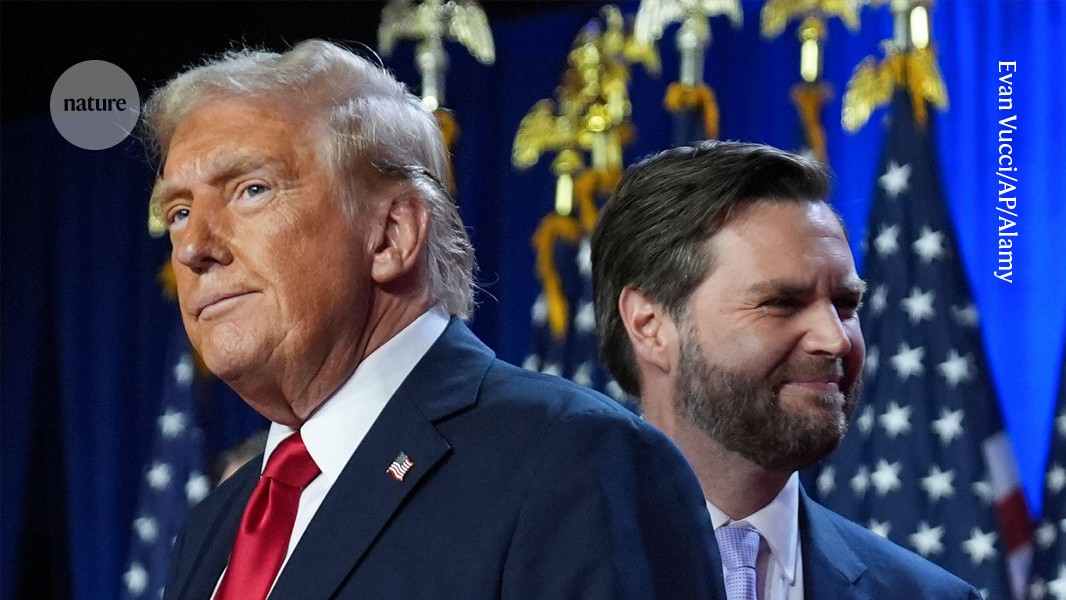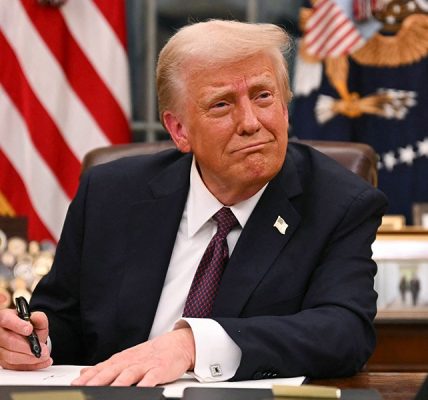What does a second Trump presidency tell us about climate change? The Bezos Earth Fund, an environmental advocate for the US, and a geoscientist who believes in science
Jeff Bezos might just be the biggest climate philanthropist out there, which is what makes his swift embrace of Donald Trump as the next US president particularly cringeworthy.
An analysis done by Carbon Brief before Harris was a Democratic candidate showed that another Trump presidency would increase emissions by 4 billion metric tons. Trump has also said that he’d take the US out of the Paris accord again.
While the US dropped the ball on climate action at the federal level, local leaders and even the private sector attempted to fill in the gaps. During the first two years of Trump’s term, a wave of tech companies made commitments to reduce emissions in line with what the Paris climate agreement requires.
The Amazon founder and chair launched his Bezos Earth Fund in 2020, committing $10 billion to funding action on climate change. The fund’s website describes it as “the largest philanthropic commitment ever to fight climate change and protect nature.”
President-elect Trump, meanwhile, says rising sea levels — which make storms and flooding more dangerous thanks to climate change — simply mean “you’ll have more ocean front property.” On the campaign trail, he disparaged solutions like renewable energy — pushing misinformation like the myth that offshore wind farms are killing whales along US shorelines. He consistently downplays the risks posed by climate change, even as the US reels from disasters like Hurricane Helene that were supercharged by greenhouse gas emissions.
Others, though, are focused on what a second Trump presidency will mean for science. Lisa Schipper, a geographer specializing in climate change vulnerability at the University of Bonn, says that she’s worried that Trump will be another nail in the coffin for trust in science because of his anti-science rhetoric. According to a survey of thousands of US adults by the Pew Research Center in Washington DC, the percentage of people who say that science has had a positive effect on society has been declining steadily since 2019.
One senior official with the US Environmental Protection Agency, who declined to be named because they were afraid of repercussions under a new administration, says that starting now, we are going to need people who are willing to fight, protect and do what’s right over what’s easy. We have to remember what is right. Public health and the environment need to be protected.
Worries pouring in this morning align with those expressed by the majority of readers who responded last month to a survey conducted by Nature. Climate change, public health, and the state of US democracy are some of the concerns that caused 86 percent of the more than 2,000 people to vote for Harris. If Trump was elected, they said they would consider changing homes or studying someplace else.
‘We need to be ready for a new world’: scientists globally react to Trump election win: Stellenbosch University in South Africa
Responses geared towards that sentiment have come swiftly. The Centre for Epidemic Response and Innovation at Stellenbosch University in South Africa is one of the best Universities in the world and with the changes around the world you may want to relocate there.
There are some researchers who are against a Trump presidency. Nature’s reader survey shows that 3% of those who responded favored Trump because of his security issues and economy. According to the chief scientific officer at Seele Neuroscience, César Monroy-Fonseca, who is from Mexico City, Trump is the lesser of the evils. The Mexican economy is heavily dependent on decisions made by the US government.
A reader who agreed to be contacted but did not want their name used, was worried about Trump’s attitude towards science. Nonetheless, the nurse said that they would vote for Trump because he wanted to be able to take care of his family.
Fraser Stoddart, a professor at the University of Hong Kong and a Laureate, says that he feels sad almost every day since he retired from the United States. “I’ve witnessed something that I feel is extremely bad, not just for the United States, but for all of us in the world.”
Source: ‘We need to be ready for a new world’: scientists globally react to Trump election win
Trump’s First Preliminary Presidential Election Results: The U.S. needs a Leader Who respects Evidence and is not afraid to act as a leader
Votes are still being counted in many places, but Trump has already won enough US states to sail to a resounding victory over his opponent, vice-president and Democrat Kamala Harris. Trump addressed his supporters as the victor early today, declaring his coalition “the greatest political movement of all time”.
Republicans also look primed to win the upper chamber of the US Congress — the Senate — flipping at least three Democratic seats, although there are four more competitive races that have yet to be called for either party. It’s possible that the Republicans will retain their majority in the US House of Representatives. This would allow Trump and his party complete control of Washington DC.
“We need to be ready for a new world,” says Grazyna Jasienska, a longevity researcher at Jagiellonian University in Krakow, Poland. “I am trying to be optimistic, but it is hard to find any positive aspects for global science and public health if Republicans take over.”
Despite many seeing the result as a step backwards, the research community should engage with the new administration with courage, tenacity, strength and unity.
Last week, Nature said that the United States needs a leader who respects evidence. The incoming administration has to follow this principle. We will take account of it if it falls short.
We hope the administration will be in the best interest of the United States. That means holding on to the best of what the previous administration did, and not returning to some of the policies of the first Trump presidency.
The United States is at its Best when it cooperates internationally: Protecting the environment and addressing climate change in low-income countries with the World Health Organization
This includes respecting the scientific consensus when making regulatory decisions in public health, environmental issues, artificial intelligence and elsewhere. This is one of the cornerstones of modern government. Policymakers and politicians can control the facts, but not the decisions they make.
Climate change must also remain a crucial priority. During the past four years, the United States took important steps in recognizing that it is in its own interests to not stand still as global temperatures continue to increase. It enacted policies to support industries and communities through the coming sustainability transition. If those policies are repealed, people on the lowest incomes and those from marginalized communities will be among those most affected.
The world is at its best when the U.S. engages internationally. That means not repeating the previous Trump administration’s decision to exit the 2015 Paris climate agreement — an accord aimed at protecting the world from the impacts of climate change, which US scientists helped to craft. It means continuing to support other international organizations, which includes the World Health Organization.
Low-income nations where the WHO work is crucial for tackling diseases and maintaining standards of public-health infrastructure were particularly at risk after Trump threatened to defund the agency in 2020. Currently, the WHO’s epidemiologists, clinicians and logistics personnel are helping to treat and control diseases in countries including Afghanistan, Ukraine, Sudan and Yemen. Diseases do not respect borders: to cooperate and engage with international institutions to fight their spread is in the best interests of the United States.
The United States is a nation that welcomes the world’s talent, in science and in other fields. That must continue if the country wants to maintain its strength in research and innovation, the bedrock of prosperity.



